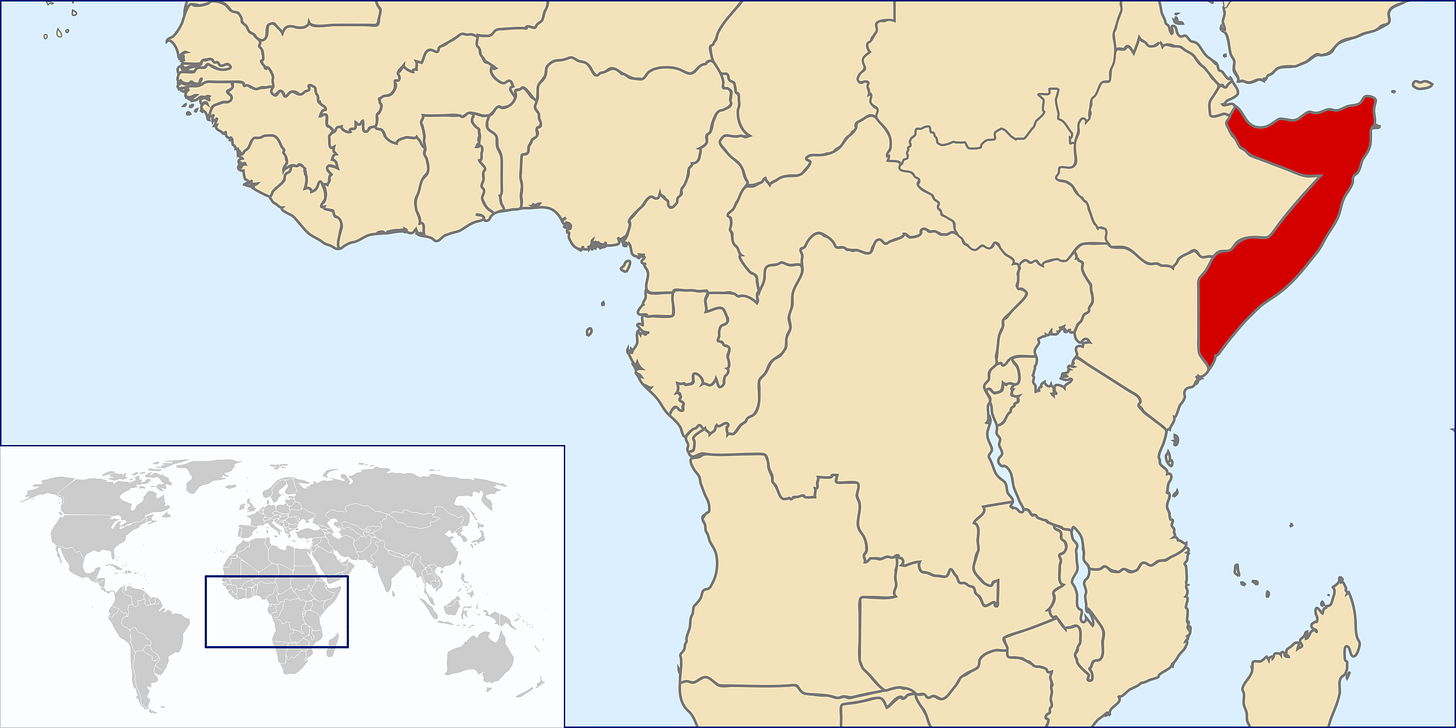🔅 Redefining Africa's Borders & Somalia's Debt Relief Triumph
Plus, Nigeria's Path to Prosperity via Rail & Ethiopia's Controversial Workforce Export
Photo of the Day

Spotlight Stories
Controversial Article: Africa's Borders Aren't Just The Result of The Berlin Conference
A new journal article from the American Political Science Review suggests 62% of the continent's borders weren't just the result of Europeans carving up the map at the infamous Berlin Conference of 1884-84. The authors suggest that pre-existing kingdoms influenced borders more than we realise.
Apparently, the Berlin Conference, villainized as the moment colonialists sliced Africa up, doesn't tell the whole story. The authors claim that the drawing up of the borders wasn't just a smash-and-grab; it involved negotiations with local leaders, treaties, and a dive into the history of African state frontiers.
Thus, while we've been picturing colonialists with rulers and pencils at random, many of Africa's modern borders were actually shaped with some input from African leaders themselves.
We'd love your take: What do you think?
Somalia's Enormous Debt is Cancelled
Somalia just received a massive debt cancellation approved by the financial bigwigs at the Paris Club worth $2 billion+. The benefactors included heavy-hitters like the U.S., Japan, and even Russia, who all agreed to forgive over 99% of what Somalia owed them.
The debt relief is well-deserved after over 30 years of being blacklisted by the global money club thanks to instability and civil war. The IMF and the World Bank are celebrating too, projecting Somalia's debt-to-GDP ratio will plummet from 64% in 2018 all the way down to 6%.
Nigeria-Niger's New Rail Link

Nigeria is laying down the tracks to economic prosperity with a shiny new railway project, connecting Kano (aka the northern powerhouse) to Maradi in Niger. The price tag? $1.3 billion.
Leading the funding express is the China Civil Engineering Construction Company (CCECC), throwing in 85% of the cash. The rest is coming from Nigeria's piggy bank, with a little help from their friends at the Africa Export-Import Bank and African Development Bank.
Portugal's Mota-Engil also jumped on the bandwagon, bagging an 840 million-euro deal to supply the rolling stock, which is train speak for "all the stuff that moves on the tracks, like wagons."
Nigeria's government is on a mission to rebuild the north, which has seen better days thanks to a decade of unrest courtesy of Islamist insurgents.
Ethiopia's Controversial Export: A Workforce of Women

Ethiopia's latest export involves young women bound for domestic work in Gulf states. A government-backed program hopes to sign up half a million women aged 18 to 40 to send them to the Middle East to work as maids, nannies, etc., a move that will result in huge flows of remittances that will help boost the country's foreign exchange reserves.
However, as noted by this article in African Arguments, it is also a high-stakes gamble, particularly regarding human rights issues. Critics, aka the human rights watchdogs, are sounding the alarm, claiming the Ethiopian government is painting this risky venture with way too rosy a brush.
Sure, remittances might fatten Ethiopia's bank account, but at what cost? With the government playing both recruiter and cheerleader, there's concern that the potential dangers—ranging from exploitation to abuse—are being swept under the rug.
Food for Thought
“If your only tool is a hammer, you will see every problem as a nail."
— Gambian Proverb





There’s such a difference between saying that the borders were semi-organic to showing how the nation-state as an idea emerged and was implemented after the Berlin conference. I am glad the paper is positing the idea of an African agency in the colonial endeavor but I wonder how easy it will be to have this normalize the massive failures of the nation-state after these borders were drawn and the colonial legacy of those failures.